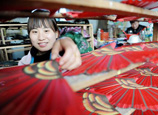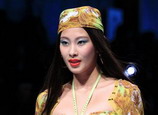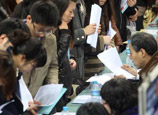
As the ruling ideology of China's new leadership, the Chinese dream has drawn worldwide attention. However, following this heightened attention have come a raft of interpretations and appeals, some of which are misconceptions.
Misconception one: Chinese dream is equal to China's dream.
President Xi Jinping has elaborated the Chinese dream, stressing its essence is the trinity of the fulfillment of Chinese people, the revival of the Chinese nation and the prosperity of the country.
But under the influence of a Western ethos, some people, intentionally or unintentionally, start to oppose the people with the country, claiming that the Chinese dream is just "China's dream," and pursuing the dream will be at the cost of the interests of Chinese people. In fact, these opinions are misinterpretations of the terms "Chinese" and "dream."
Misconception two: Chinese dream will replace the American dream.
In the new era of sustainable development, the American dream and European dreams are all fading away respectively because of the massive consumption of resources and the European debt crisis.
Under this circumstance, the introduction of the Chinese dream is very likely to be overly magnified as China's effort to increase its soft power. Especially when the Sino-US relationship is wrongly illustrated as a second-power and first-power relationship, such concerns are raised that the Chinese dream will replace the American dream, which in fact is a misunderstanding of the inclusive Chinese culture.
Misconception three: Chinese dream is just a new form of utopia.
Although positive in English, utopia is usually depicted as a daydream in Chinese. Some foreigners are trying to slander the Chinese dream as spiritual opium, which will cover social conflicts and hypnotize Chinese people to be less reform-minded. However, the Chinese dream is not a spiritual consolation, but an integration of ideals and realities.
Misconception four: Chinese dream signifies China's abandonment of the communist ideal.
The keen eye of overseas media is also focused on the link between the Chinese dream and China's State system, speculating that China is orienting itself to its own situation and giving up on the communist ideal. However, China is a socialist country led by the Party. The Chinese dream doesn't exclude communist ideas, but strives to convey common prosperity of the country and beyond its border to all nations.
Misconception five: Chinese dream does not include reform through trial and error.
It is conjectured that the Chinese dream indicates a U-turn of the Chinese government to become more concentrated on the top-level design. Actually, a down-to-earth Chinese dream does not reject the practice of reform and opening-up. On the contrary, it renews such vows.
 |

















 Homemade submarine, deep pockets | Also See: Incredible inventions by Chinese
Homemade submarine, deep pockets | Also See: Incredible inventions by Chinese


![]()
